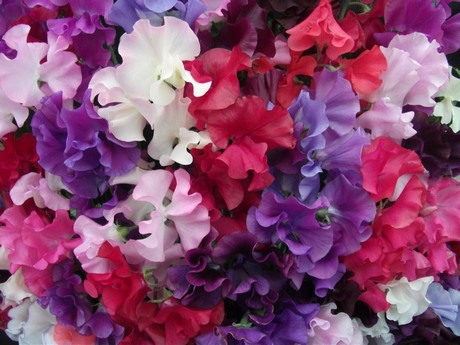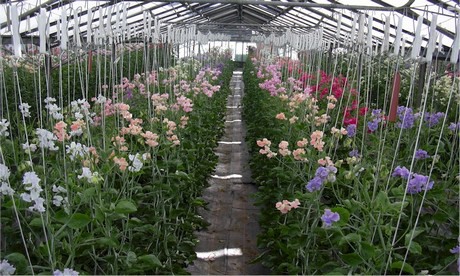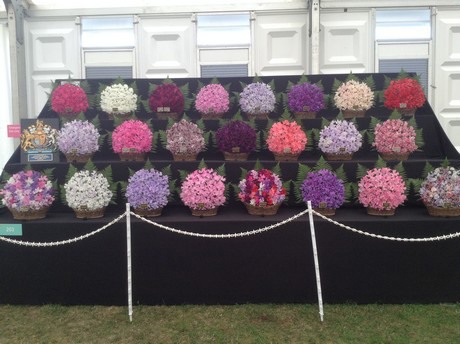The sweet pea has been a British favorite for centuries, thanks in no small part to its fragrant perfume. Derek Heathcote has been growing this quintessentially British crop since the 1990s, and his company is now among the top producers in the world. Derek has seen the flower grow in popularity, with customers in 25 countries, having carved out a solid niche in the market.
The sweet pea bug
Derek started growing sweet peas, as a young boy, with his father. "I would always plant a few at the end of his runner bean row. This is where I got 'The Bug' and carried on into my married life growing and showing as an amateur." When Derek was made redundant from the motor engineering trade in the early 1990s he decided to try his hand at the commercial side and set up the business of Eagle Sweet Peas. "This has gone from strength to strength and is now a family run business with my son as a partner."

Made in the UK, appreciated around the world
According to Derek, sweet peas are enjoying great popularity. "We are at the peak of the sweet pea world and the bulk of our customers are from the UK. We also send seed all over the world and at the moment supply 25 different countries."
It's not just the buyers that are international in nature, however - production also spans the entire globe. Sweet pea seeds have been grown in New Zealand for UK growers, since the early 1950s. "Unwins Seeds were the first people to do this and other seed companies, like ourselves, have been doing it since. We have had seed grown in New Zealand since 1992 and the people out there are very friendly. Most of the seed is grown on the North Island and the climate is excellent for seed production, big, bold seed."
All of Eagle Sweet Pea's own plants are grown from seed, with up to 5,000 sown each season. Derek isn't afraid of competition from the 'big boys' though. "Most sweet peas are bred by amateurs and not large seed companies. We breed 80% of our own varieties but still buy in good quality varieties from amateur growers. There are not many sweet pea seed companies."
The secret of the sweet pea scent
The perfume in the sweet peas is as much of a secret as the rose, wallflower or honeysuckle. Sweet peas were bred for perfume from around 1699 when 'Cupani' was first brought to the UK from Sicily. The Latin name for sweet peas is actually Lathyrus Odoratus (perfume). "All modern sweet peas have a perfume to a lesser or greater degree, red and orange tend to have the least."
And while the true secret of the sweet pea's perfume may never be known, Derek is willing to share a bit about the work that goes into breeding a new variety.

"To start with you select your parent varieties with the best assets. To cross pollinate them remove all 10 pollen sacks from the seed parent and pollinate with the male pollen sacks. A sweet pea is pollinated in the bud stage, therefore cross pollination has to be in the bud stage. If the flower opens then the fertilization has already taken place.
"Seed is collected from the seed parent and grown on in the next season. These are all F1 generation and all flowers will be the same colour. In the F2 generation there should be a split in colours, choose the colour required and save the seed and grow on. F3 generation flowers should be checked and if the same colour would be classed as 'fixed', so that has taken 3 years. They should be grown for a further 2 years and kept a check on to make sure they have come true to colour. They can now be put onto the market."

Derek Heathcote will be at the Chelsea Flower Show (which he calls the "World Cup in Horticulture") again this year to showcase his company's sweet peas.
For more information: Eagle Sweet Peas
Eagle Sweet Peas
Broadmore Lane
Stowe by Chartley
Stafford SR18 0LD
sales@EagleSweetpeas.co.uk
www.eaglesweetpeas.co.uk
